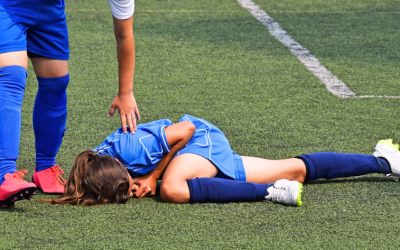Parkwest orthopedic surgeon tackles rare joint disease
Randall and Maryellen Duckett
Randall Duckett is going to walk his youngest daughter down the aisle this spring. Just two years ago, he was wheelchair-bound. “It had gotten to the point at which his feet were curved at a 45-degree angle, so he couldn’t stand up and walk. He was practically bent at a 90-degree angle at the waist when he did stand,” Maryellen Duckett, Randall’s wife, said. “I’ve known him since he was 22, and I can see the arc of how his joints have deteriorated and what it can do to you.” Randall, who is now 56, has a rare genetic joint disorder called multiple epiphyseal dysplasia (MED). Only 1 in 10,000 people are diagnosed with the chronic disease, a population that also includes his mother, brother and oldest daughter. MED affects the growth plates at the point where bones meet, which causes all joints in the body to be deformed. When he was 27 years old, Randall had his first hip replacement. Soon the other hip followed, and since then, he has had another set of hips, his knees and ankles replaced and his feet operated upon at Parkwest. He is considering having his shoulders replaced in the near future.
“You hear about MED in school, but I hadn’t seen it in person before,” Paul Naylor, MD, Parkwest orthopedic surgeon, said. He has treated Randall since 1999. “People can’t know the pain Randall is feeling internally, because he looks OK on the outside. I couldn’t have imagined the toll it would take when I first saw him more than a decade ago.” Because Randall’s condition is rare and complicated, Dr. Naylor had to take a different approach to his treatment. He has done further research on MED and created a plan just for Randall. “I told him that it would be a slow, relentless process that we wouldn’t rush. We’d pick our battles and get to the emotional level that is needed to go forward with each surgery,” Dr. Naylor explained.
Randall and his family in 2014
“Having Dr. Naylor as a confidante and physician over the years has been invaluable to me,” Randall said. “I rely on him to understand my condition and have the patience to help me through it. He’s always been there for me.” For Randall, an orthopedic surgery does not mean being back on the golf course in a few days or climbing the stairs more easily. His goals are simpler. “Dr. Naylor and the Parkwest staff understand that success for me is measured in a different way,” he said. “It is much more complex than popping in a new joint. I’ve appreciated that the most. They are never condescending, don’t get frustrated that I am not progressing like everyone else and understand what they don’t understand. Not many others would take the time to ask how to figure out a puzzle like MED.” Beyond treatment for joint pain and mobility issues, Dr. Naylor has provided a quality relationship for Randall through his disease, which can be isolating. “Once I put on that white coat, I am a neutral party,” Dr. Naylor said. “We’ve developed a loyal relationship and have a sense of trust and comfort with each other. What makes being a physician fun is getting to know a patient and becoming part of his or her life. I see that as an honor.”
Additionally, Randall and Maryellen have found comfort in the staff members at the Joint Center at Parkwest, who also understand the different pace at which Randall must go. “There is a chart on the wall showing the progression of each patient through the joint replacement process, and it meant a lot to me that they took Randall’s name off of it,” Maryellen explained. “He was never going to be at the same pace as everyone else, and it said to me that they get it, and they’re setting the bar at a different level for his specific needs. Success doesn’t look the same for everyone, and not having to live in a wheelchair at this point in his life is success.” “It’s difficult to live with this condition,” Randall said. “It’s very lonely to be trapped in a body that doesn’t work like everyone else’s. It helps when you have a physician like Dr. Naylor and a facility like Parkwest to help you cope and continue to be treated, because you’re never going to be cured.” “What we’ve learned through this process and our experience with Dr. Naylor is that even if you have chronic orthopedic issues, you can have a better quality of life if you find out what can be done,” Maryellen said. “The orthopedic surgeons at Parkwest work to figure out who you are and what your goals are, then create a solution just for you. “When you’re dealing with a whole body disease like his, your quality of life will suffer. But for now, is Randall’s quality of life better than it was? Yes. Is the opportunity to feel better there now? Yes. Parkwest has helped him not to be wheelchair-bound prematurely. That is a huge gift.”



